People Are Calling This Wellness Influencer Out Over Her Viral Constipation Hack After One Person Says It Sent Them To The Hospital
This article is not a replacement for seeing a medical professional. Gut issues are specific to each individual and could also indicate that there might be more underlying issues at hand.
If you scroll on TikTok or Instagram, you'll probably find multiple "constipation hacks" that claim to relieve bowel issues.
For example, a Reel reposted in December 2023 by recipe developer Bethany, aka @lilsipper, who posts low-sugar recipes for people with IBS, claimed you just need three ingredients to help with constipation: an orange, cinnamon, and cayenne pepper.
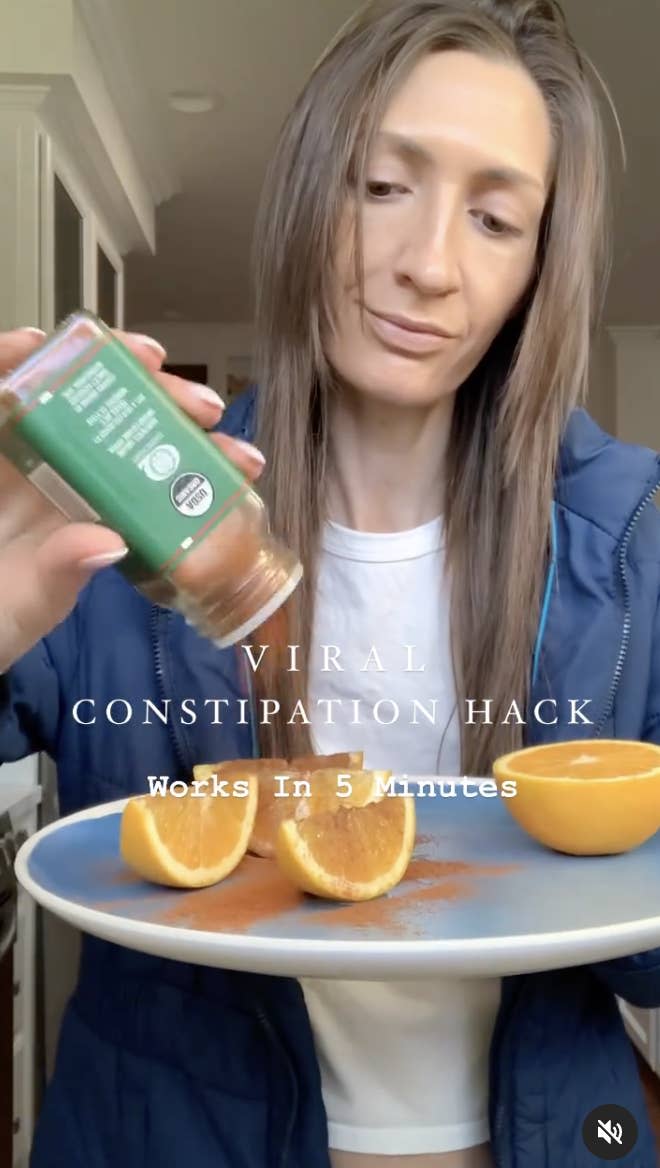
According to the video, this constipation hack will work in five minutes. "Every time I share this, I get messages thanking me," Bethany said. "It works about 95% of the time. So, if you need a little push, try this constipation hack and wait five minutes. If you've tried this before, let me know how it went. We're all human, and we do the same thing — but sometimes, we need Mother Nature to literally help us along. It's cheap, effective, and works fast."
While the Reel may have accumulated close to 500,00 likes and 44 million views, it seems people have either stated that they would rather use a different laxative method or simply be careful before trying this hack.
For instance, one person said they better go to the bathroom ASAP if they have to eat the peel of an orange.

Another person said they actually tried the hack a while ago when Bethany posted the video the first time around, and it did not work.
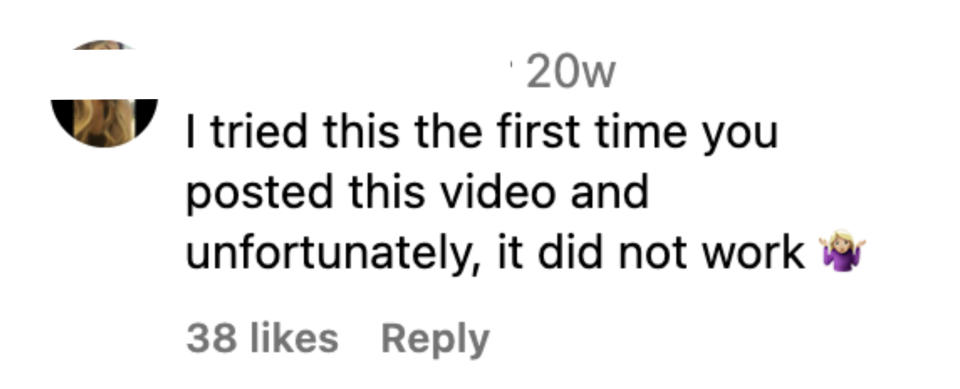
Bethany even replied, asking if this person "used a navel Orange? And eat the peel?" Their response? "Yes, and yes."
However, while most of the comments were lighthearted in nature, a few people claimed that something dangerous had occurred because of this hack. According to a few commentators, one or more people allegedly went to the hospital for a burned esophagus after trying this "health hack."
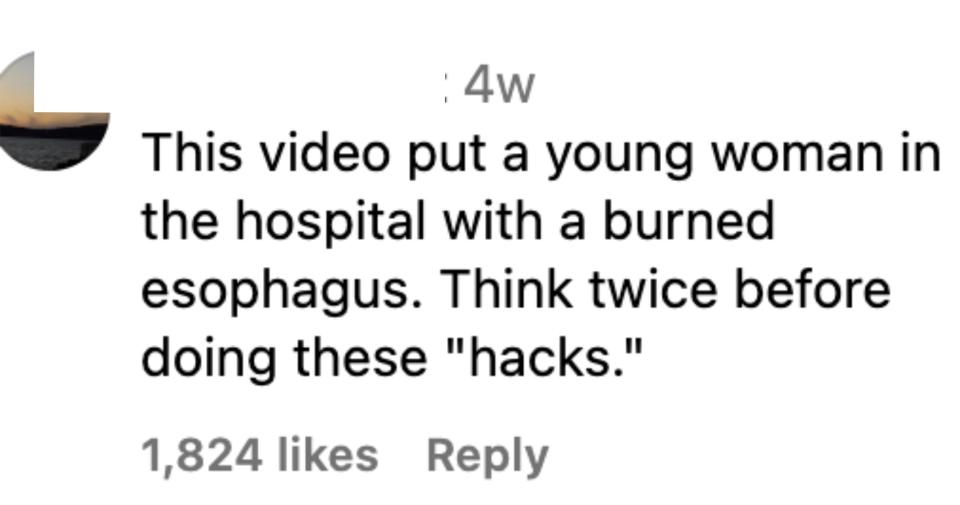

@lilsipper
While we don't know the exact timeline of when and if these events coincide, it seems people have come across a TikTok video of a woman, posted at the beginning of April, who claims she went to the hospital after listening to a health and wellness influencer.
According to the video, about six years ago, she began following a well-known health and wellness influencer who created holistic recipes and was in the process of healing her body from a chronic illness. Since the follower was also trying to heal from a chronic illness, she said that she started to lean into the influencer's content.
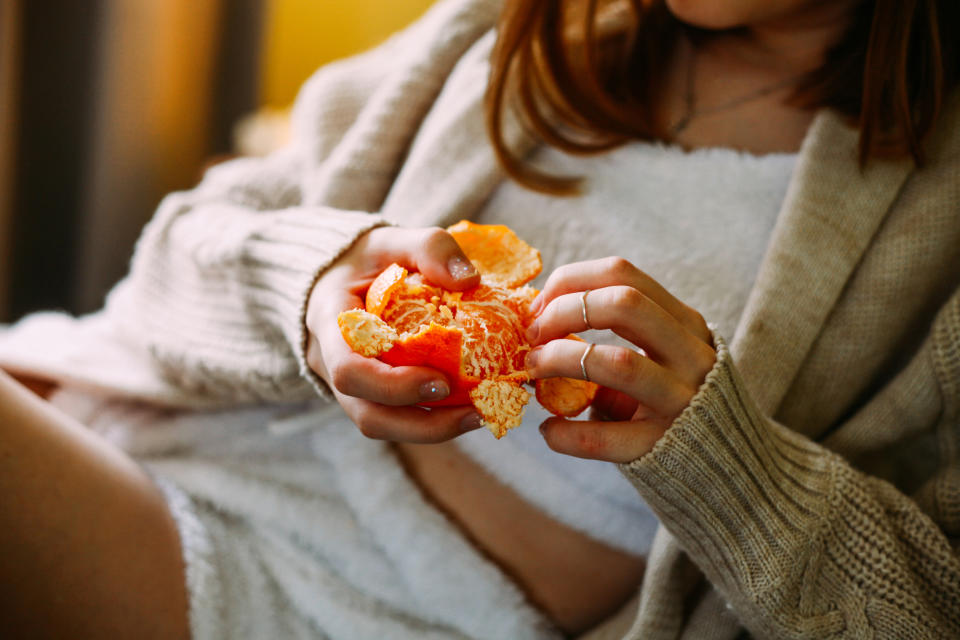
"It was one day when I stumbled upon one of her videos, talking about how you could help your digestion by coating an orange with cinnamon and cayenne pepper and eating it, peel and all. It was not pleasant going down," she said. "I thought I was doing the right thing for my body, and it would thank me later. Wrong."
"I ended up so sick, I had to go to the hospital. And when the doctor asked if I had eaten anything in the last 24 hours, I let him know that I coated an orange in cinnamon and cayenne, peel and all, and ingested it," she said. "He looked at me and said, 'Why would you do that?' And you know what my answer was? I saw someone do it online. As soon as it came out of my mouth, I was like, 'I deserve this.' He said, 'Well, now you might've burned your esophagus.'"
Across the video, the person wrote, "I suffered for months."
She continued, saying that she had to see a specialist and get an endoscopy, which confirmed she had burned her esophagus. She also explained that this event occurred years ago, but she recently saw the influencer repost the video within the last year. "This makes me upset because there are now hundreds of [millions] of people, looking to her for information... I'm not saying that the holistic route is not the way to go for most cases — that is the route that I go in most of my life. But it's not one size fits all. Everyone has different bodies, everyone has different health histories, and everyone has different genetics, and it's dangerous to recommend something for someone and say, 'This is the cure to your digestion issue' — but it's even more dangerous to believe everything you see."
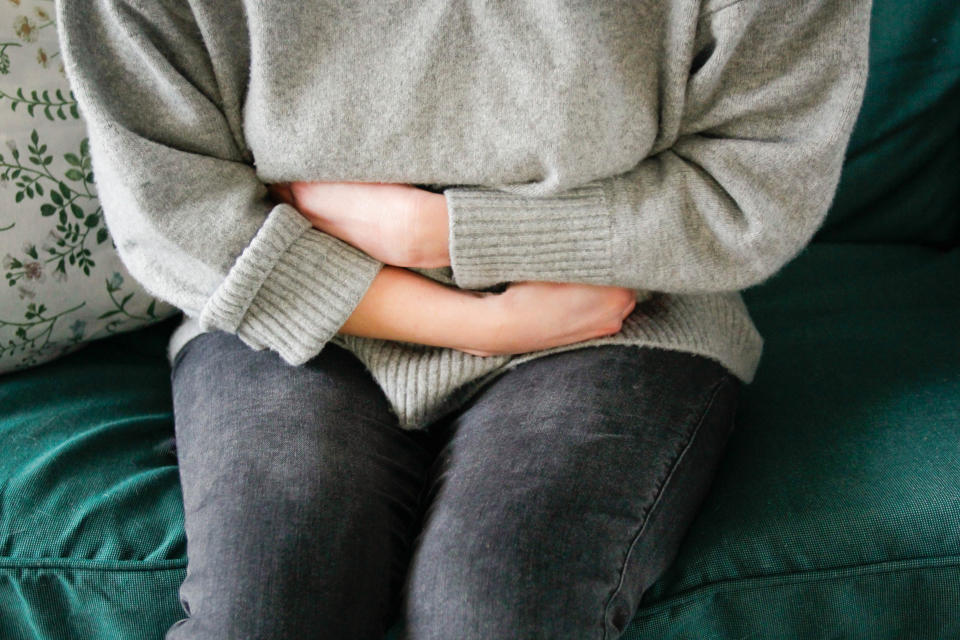
She continued: "So while I do believe it's an influencer's and a content creator's responsibility to be mindful, I think we have even more responsibility to discern and to take everything we see with a grain of salt. That is the last time I will listen to a health and wellness influencer."
Since this person posted their video, it garnered over two million views, with dozens of other people stitching her video with their own painful experiences of either trying other health and wellness influencers' tips or how other medical professionals have given incorrect medical advice over social media.
Dr. Will Bulsiewicz, gastroenterologist, bestselling author, and U.S. Medical Director of ZOE, said it makes sense why a lot of people are having similar negative experiences with this kind of health and wellness content. "There's an overwhelming amount of information out there, the algorithm is a black box that’s feeding us content based upon the biases it has identified in us, and everyone seems to be an expert," he told BuzzFeed. "All these things make it more difficult than ever to separate fact from fiction."
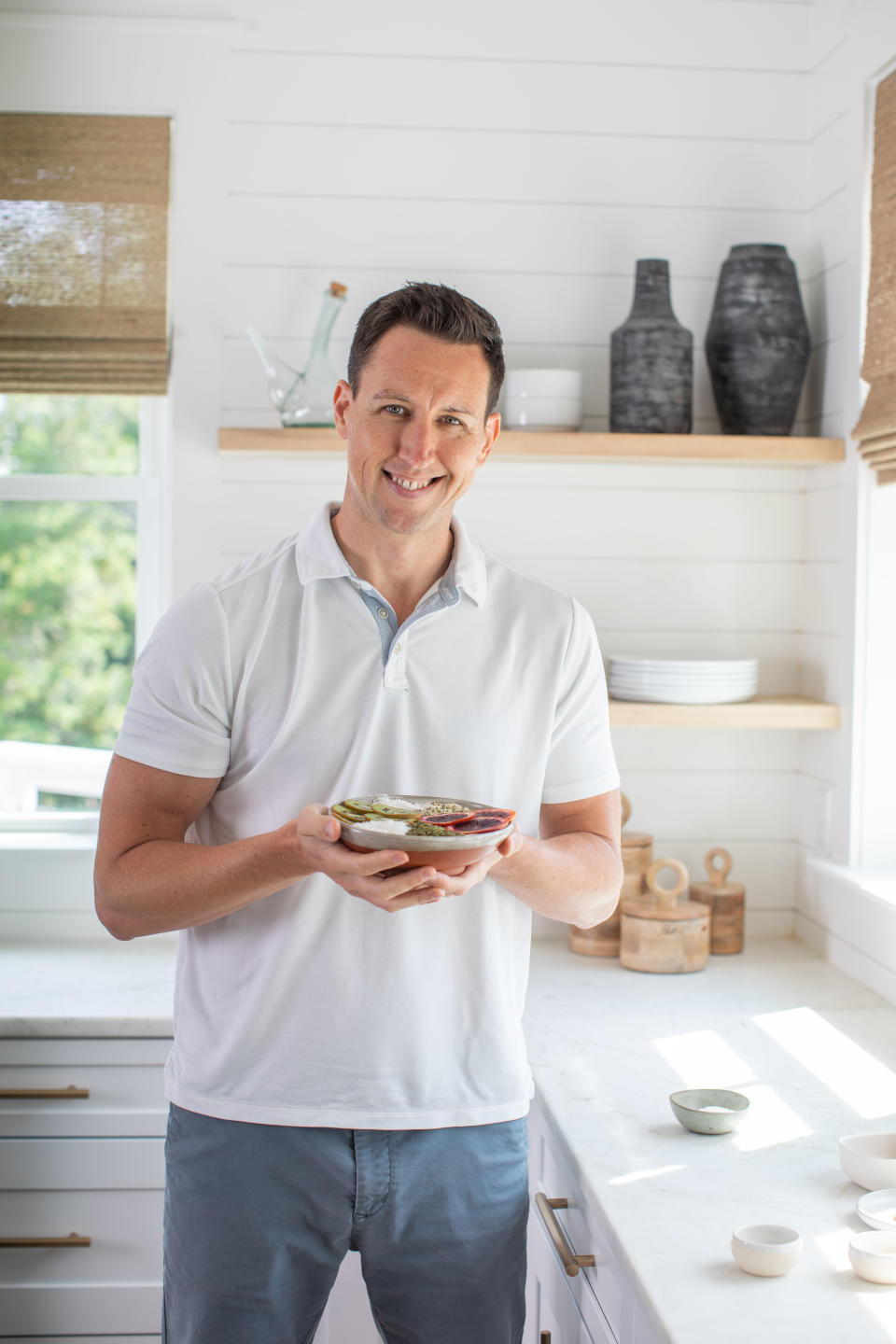
But even though the algorithm is feeding us this information, it doesn't mean the content being pushed onto us is filtered through a reputable lens. That's why Dr. Bulsiewicz suggests that people be "conscious consumers of information." "Rather than accepting what’s presented to us, even if it’s exciting or tells us what we want to be true, we should first ask ourselves whether we have a reputable source for the information," he said.
But how does one discern if the source is reputable or not? Dr. Bulsiewicz provided a list of questions you can ask yourself before accepting any advice from the internet.
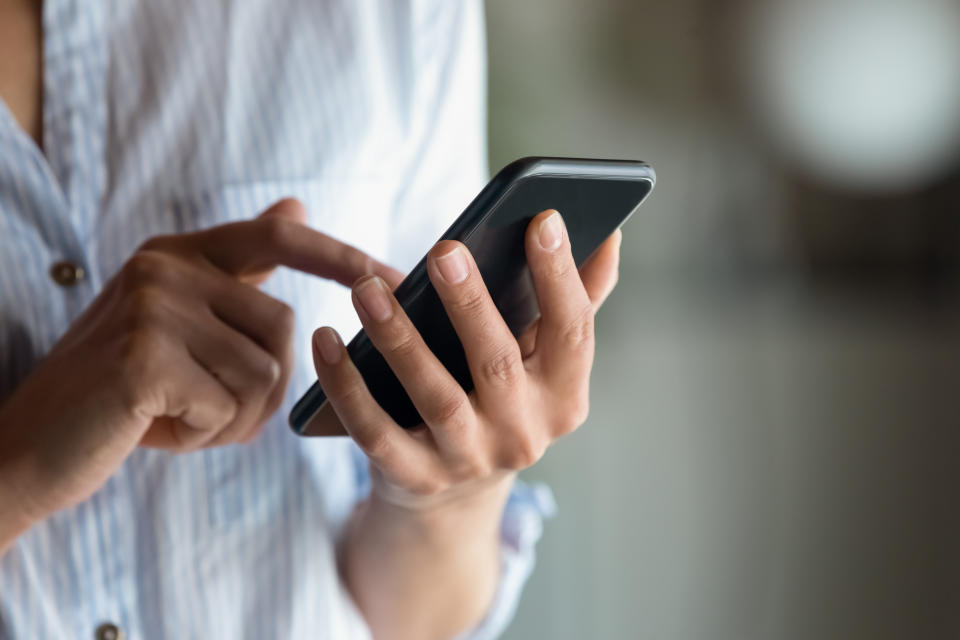
1. What qualifications does this person have that makes them an expert in the field? Our most basic question.
2. Are they in line with scientific consensus, or are they a lone wolf claiming that “all the scientists got this wrong, and I got it right?" Beware the lone wolf who claims to know things that no one else has thought of.
3. What science can they provide to support their claims? You’d be shocked how often there is no answer to this simple question.
4. What type of science do they provide? We prefer human studies with high-quality evidence, such as systematic reviews and meta-analyses, randomized controlled trials, or large population studies. Beware the person who always cites test tube studies, animal studies, or anecdotes and ignores the higher quality human studies that refute their point.
5. Do they consistently reach the same conclusion, even when they are presented with research that would suggest otherwise? Sounds like an agenda if all roads lead to the same result.
6. Have they taken a position that’s anti-science – claiming that research and scientists shouldn’t be trusted? This is a way to discredit experts and science that defies their agenda.
Also, just because a health influencer's advice goes viral, like the one above, doesn't mean it's backed by science. "Things are more likely to go viral because they’re unexpected and different, which makes them exciting. But there’s a reason why they’re unexpected and different—because they’re unproven," he said.
For instance, there's no human research to support the orange constipation hack actually works, said to Dr. Bulsiewicz. "The limited evidence that we have comes from laboratory animals," he added. "Obviously, humans are a bit more complicated and laboratory research often does not translate to humans, so we have to be careful with it. We simply don’t know whether this works or what the potential risks or side effects may be."
This is why it's even more important for health and wellness influencers to be incredibly selective about the kind of content they choose to create and post on the internet. "Outside of influencers and the internet, this is the reason we have governing bodies, formal certifications, rules, and regulations in order to be a health practitioner. You can't just claim to be a [medical professional]," he said. "You have to get a medical license, which includes verification of qualifications, training, test completion, history of misconduct or discipline, and a background check. This typically takes many months to complete, and as a licensed physician, your conduct can be reviewed. Not to mention, there is obviously the possibility of malpractice lawsuits."
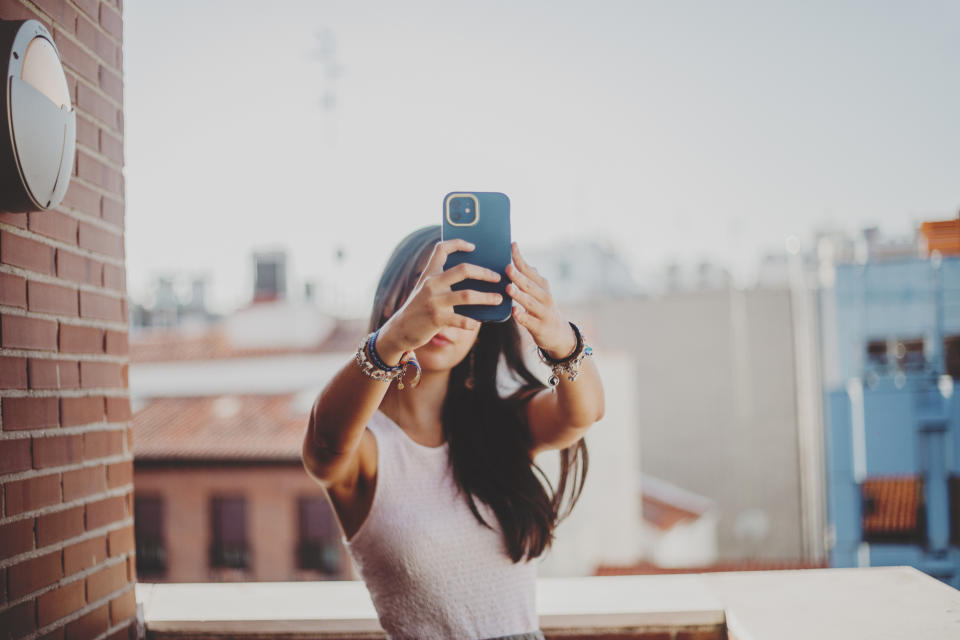
"But on the internet, anyone can say literally anything, and there's no one to stop them," he added. "It seems like the internet needs to be held to the same standards that we expect from our healthcare professionals in our community. It seems that it would be best to have some form of health and wellness licensure and oversight — but clearly, that's not where we are. I don't think it's enough to simply say, 'Influencers should do their best to share good information.' What if they are doing their best, but they're just not adequately qualified to be sharing?"
So what can be some of the side effects and risks of the orange constipation hack? Dr. Bulsiewicz provided a list below:

1. "If a person is constipated, aggressively forcing motility can result in sharp, often severe abdominal pain," he said. "It generally comes in waves that build until you get temporary relief before a wave comes again, which reflects the waves of colon motility passing through. This would be particularly harmful if someone is impacted with stool (which occurs more often than you’d think) or in a person who has a blockage of their intestines, such as can happen with Crohn’s disease."
2. "While long-term use of cayenne pepper can actually help irritable bowel syndrome, in the short term, it can make things worse and instigate gut pain," he said.
3. "Lastly, oranges are often sprayed with pesticides or other chemicals that accumulate on the surface of the orange peel," he said. "The peel is usually removed, but in this case, it is being consumed, and that could potentially lead to ingestion of toxic substances that could negatively harm the gut microbiome."
While the above factors can impact the gut, Dr. Bulsiewicz said excessive ingestion of cayenne pepper was most likely the cause of the follower's burned esophagus. "Certainly, we don’t know the state of this person’s intestines prior to ingesting the cayenne-drenched oranges, but if she had any sort of injury to the surface layer of her intestines – which could be the result of acid reflux, an ulcer, or gastritis – then it would make complete and total sense that cayenne would cause severe pain on ingestion," he said.
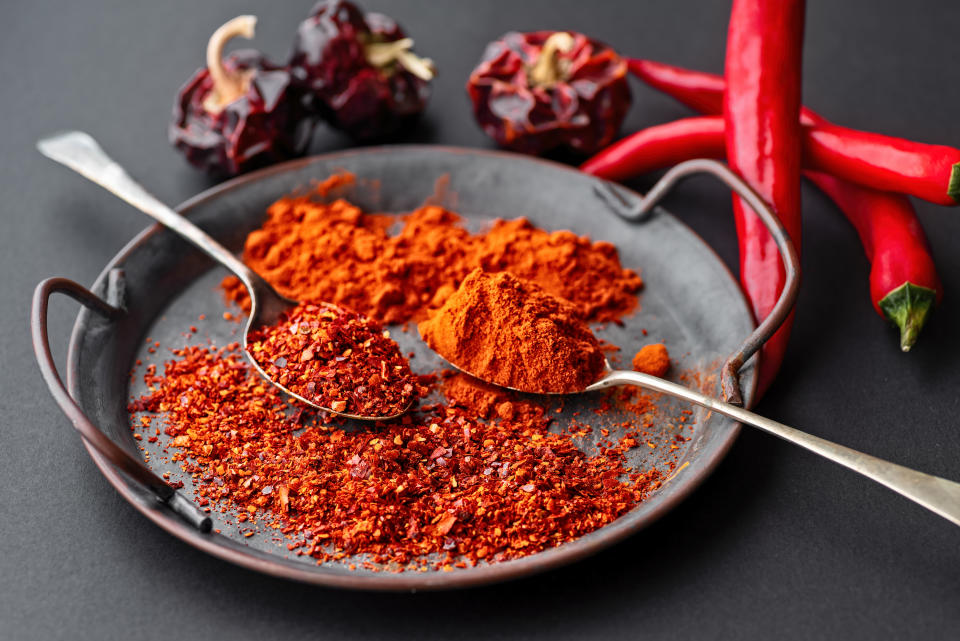
"Admittedly, cayenne pepper, when consumed routinely in the appropriate amount, can be quite healthy for most people. That said, it’s easily possible to consume an excessive amount of it and cause bodily injury," he said. "That’s one of the issues that exists around the advice that was given is that there really aren’t boundaries defined for safety."
Since our expert doesn't know if the hack will work or not, there are other ways to help relieve constipation, according to Dr. Bulsiewicz.
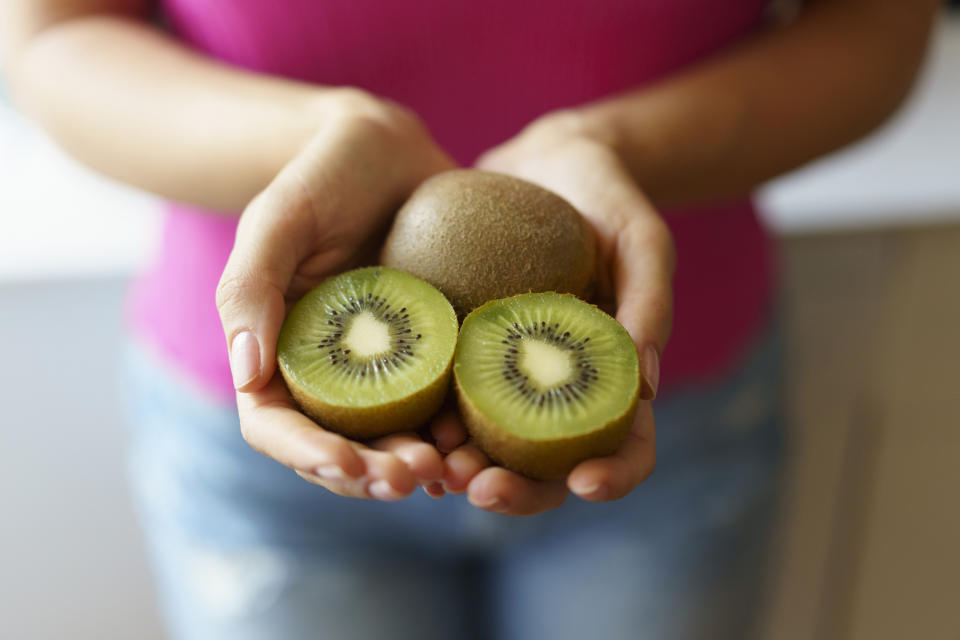
"Two options immediately come to mind as a gastroenterologist: kiwifruit and magnesium. Kiwifruit is delicious and a great source of fiber that bulks up our stool, absorbs water, and helps with laxation. This was actually proven in an international clinical trial where participants ate two peeled kiwis per day, which improved their constipation and pain, as well as indigestion. There were no serious adverse events by eating kiwi," he said.
"Magnesium oxide has been similarly proven. In a human clinical trial, 1.5 grams of magnesium oxide daily improved the frequency of bowel movements and quality of life with no severe adverse events," he explained. "With magnesium, it is best to discuss this with your doctor prior to proceeding, and it’s possible to have your magnesium levels checked before and after initiating the supplement to verify that you’re in the normal range."
It's important to keep in mind that inadequate fiber consumption is a main cause of constipation, and 95% of Americans are deficient in fiber, Dr. Bulsiewicz said. "The recommended amount of fiber in our diet is 25 grams per day for women and 38 grams per day for men yet the average consumption is around 15 grams per day for women and 18 grams per day for men."
That's why if you're experiencing chronic constipation, it's essential to check with your doctor first before trying any hacks you find on the internet. "You want to understand why the change in bowel habits has occurred and to ensure there’s nothing more serious going on," he said. "The treatment of chronic constipation is highly nuanced, with a number of over-the-counter, supplement, and prescription-strength medications as well as alternative constipation treatments such as pelvic therapy."
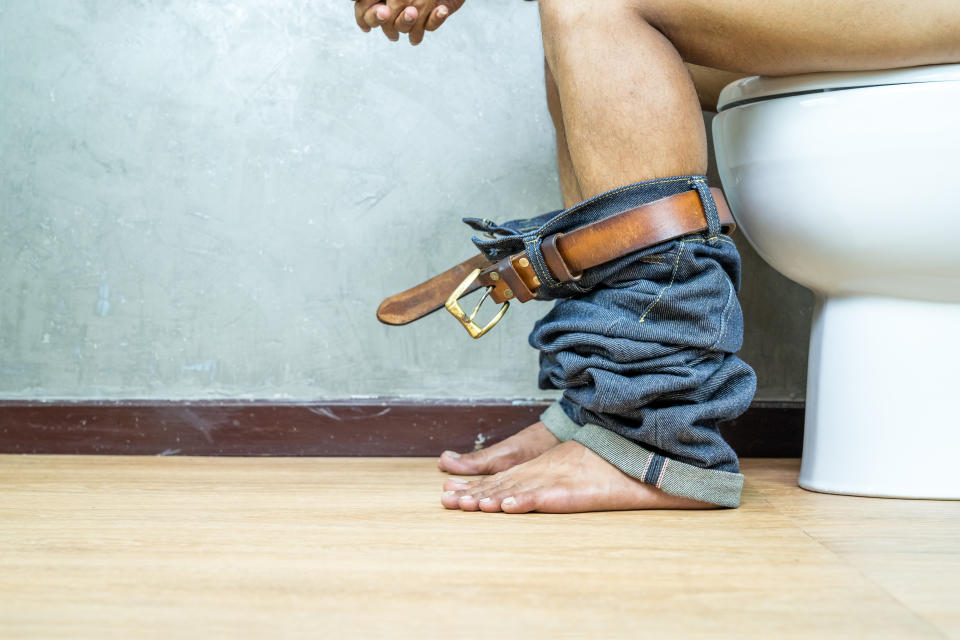
According to Dr. Bulsiewicz, the bottom line is that if we addressed our fiber deficiency, we’d be a nation of "super poopers" instead of dealing with so much constipation.
"It’s important to understand that we have tons of options for treatment of constipation that are proven by human studies — they’re effective, they’re low risk, and we don’t need to guess," he said. "So, while the unexpected and different idea may be exciting on the surface when it comes to our health, we’re better off going with the tried and true option."
Have you experienced any issues with trying a health and wellness influencer's tip or hack? Tell us what happened in the comments below.
Cameron did not respond to a request for comment.

 Yahoo Lifestyle
Yahoo Lifestyle 
